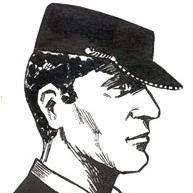Cuba remembers American hero Henry Reeve
Revolutionary commitment knows no boundaries of nation or race
He was known to some by the nickname “Enrique, El Americano.” He was known to many as “El Inglesito,” (the little Englishman), because he was tall, blonde, and spoke no Spanish when he first arrived in Cuba to participate in the Cuban War of Liberation of 1868 to 1878. It has been said of him that he demonstrated on many occasions his positions for the abolition of slavery and the independence of Cuba from Spanish colonial rule. In 2005, in naming an international medical brigade in his honor, Fidel Castro said of this American that he put into practice the teaching of José Martí that one’s country is all humanity.
On August 4, 2023, Cuba commemorated the 147th anniversary of the fall in combat in the Cuban War of Independence of the American Henry Reeve, who joined the Cuban Army of Liberation as a private and rose to the rank of brigadier general, as a consequence of his bravery and prowess. The commemorative ceremony was held in the town of Yagu…



